AITA for not forcing my child to eat blueberries?
Family mealtimes can be a mix of fun, negotiation, and the occasional food fight. In one memorable evening, a seemingly simple decision about whether or not to eat blueberries turned into a full-blown parenting debate. An 11-year-old, clearly expressing his dislike for blueberries, found himself caught in a tug-of-war between gentle persuasion and forced eating. The incident not only sparked tears at the dinner table but also ignited a larger conversation about respecting a child’s tastes and bodily autonomy.
This story invites us to explore a delicate balance: encouraging healthy eating without turning mealtime into a battleground. With plenty of fresh fruit available and the child’s overall diet well-rounded, should parents insist on every bite—or is it better to allow a little flexibility in what a child chooses to eat?

‘AITA for not forcing my child to eat blueberries?’
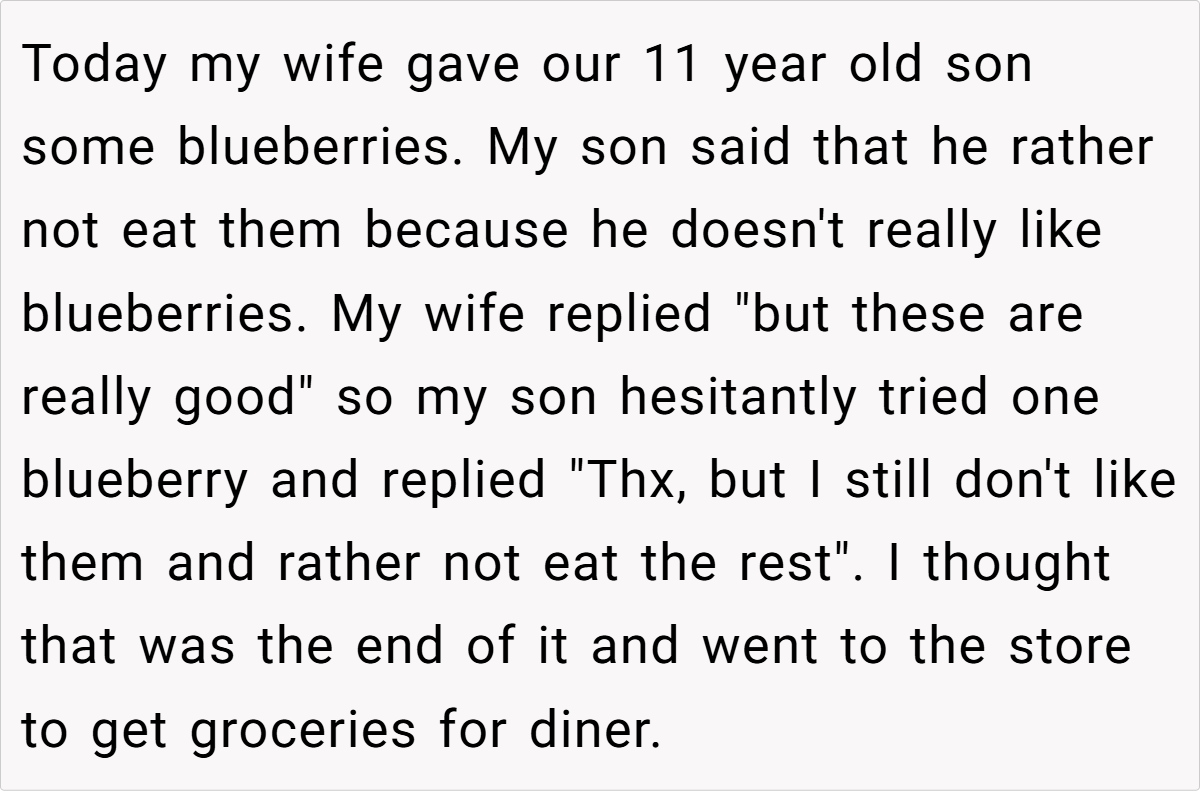
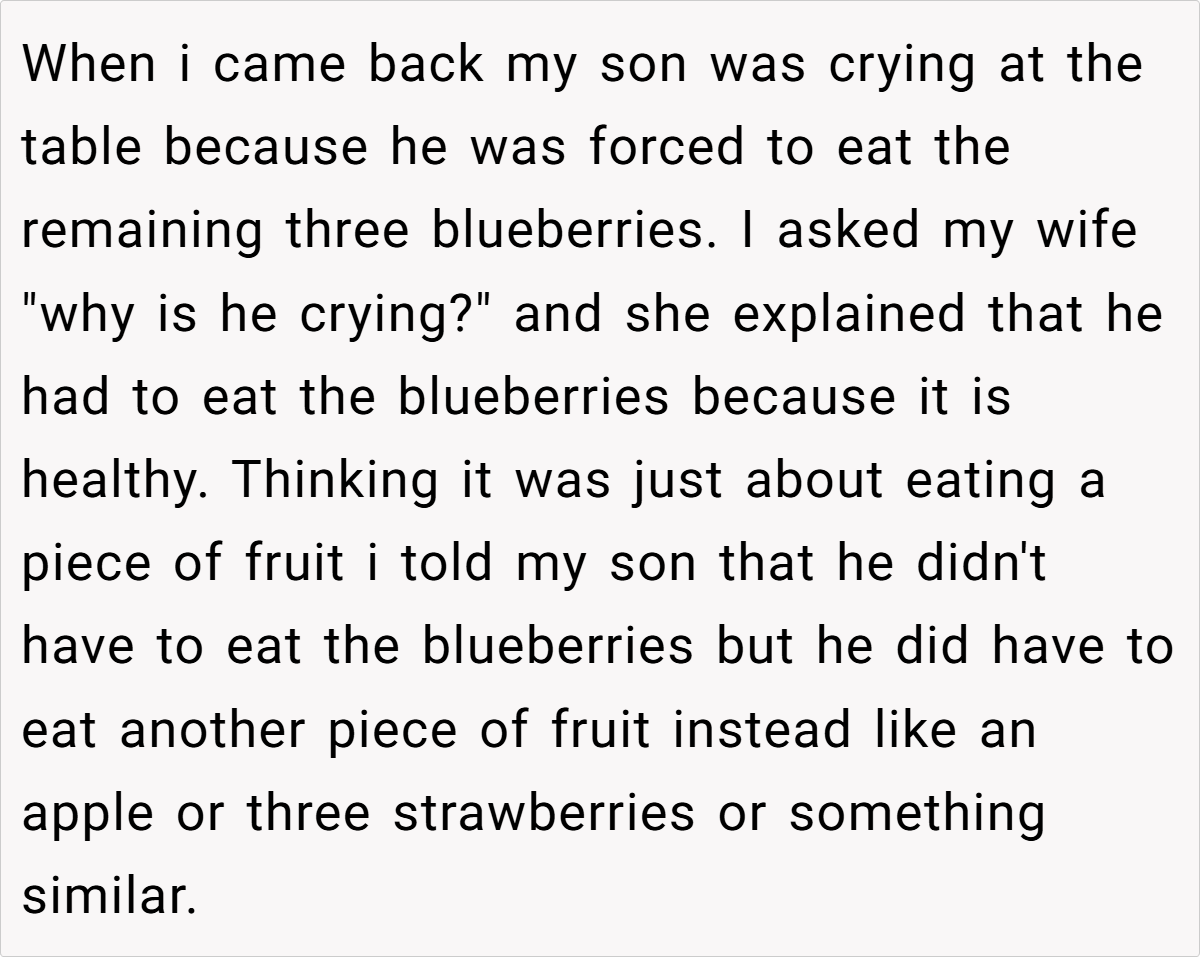
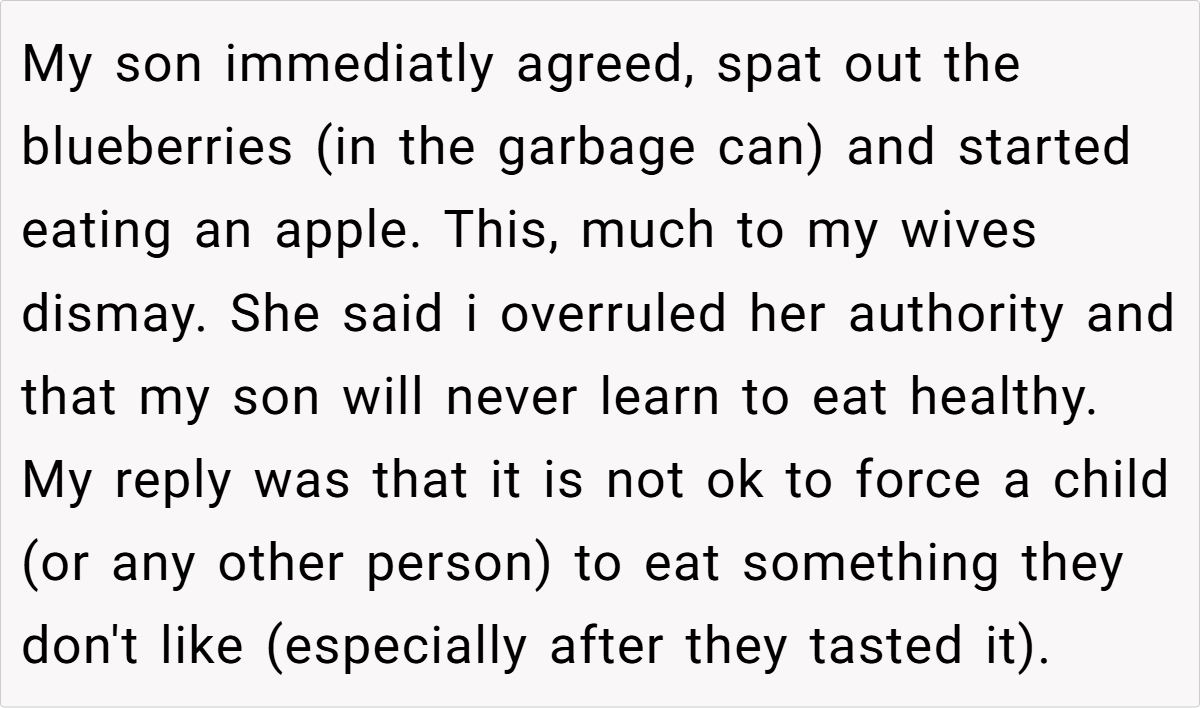


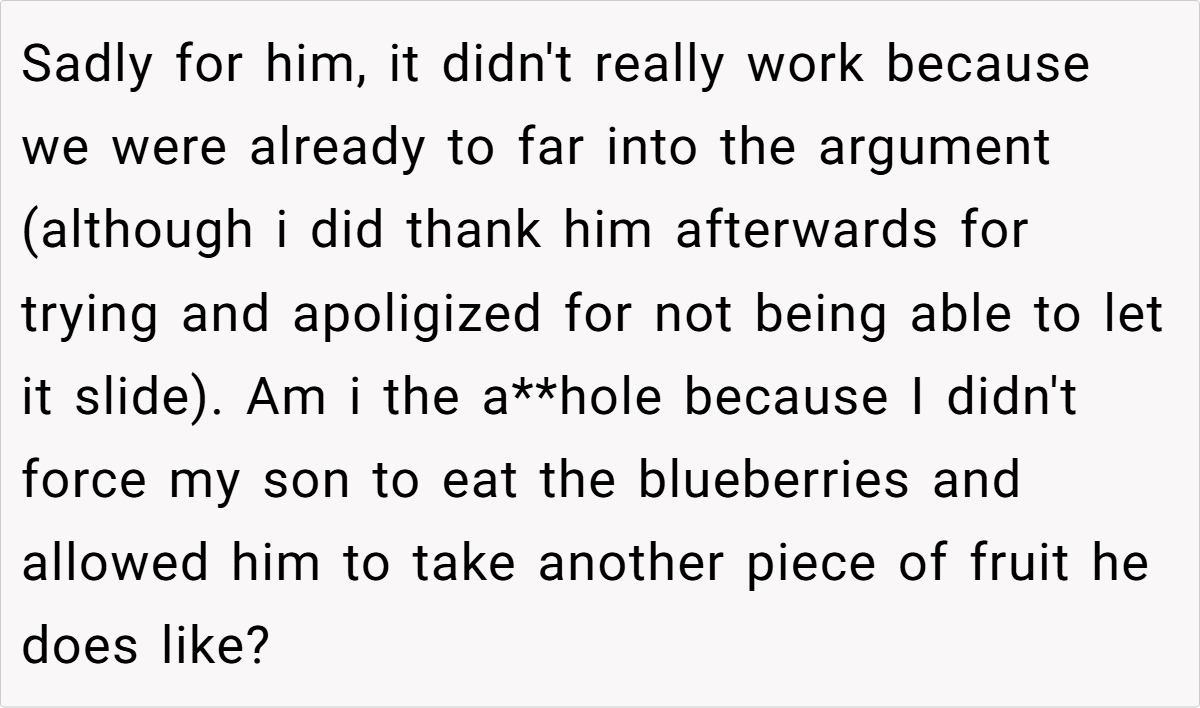
When it comes to nurturing healthy eating habits in children, experts emphasize the importance of respecting their taste preferences. Forcing a child to eat something they’ve already expressed dislike for can backfire, creating negative associations with that food.
“Forcing children to eat foods they dislike can lead to mealtime battles and may even contribute to long-term aversions or disordered eating patterns,” says Dr. Ellyn Satter, a renowned expert in child nutrition and feeding practices. Her insight underscores that mealtime should be a positive experience, where children learn to listen to their bodies rather than feeling pressured to conform.
In this case, the father’s decision to allow his son to choose an alternative fruit rather than insist on swallowing the blueberries demonstrates a commitment to responsive parenting. By offering a substitute that the child enjoys, he not only defused the immediate conflict but also affirmed his son’s right to have personal preferences—even in matters of health. This approach aligns with current research that suggests children develop better eating habits when they’re allowed some control over their food choices.
Moreover, forcing food on a child may undermine their ability to self-regulate. When children are compelled to eat something they don’t enjoy, it can lead to stress during meals and create an adversarial relationship with food. Experts recommend a balanced strategy: encourage variety and introduce new foods gradually, but avoid turning eating into a power struggle. By validating the child’s feelings while still promoting a healthy diet, parents can help foster a more positive outlook on food that lasts well into adulthood.
Finally, it’s important to recognize that each child’s taste buds and food preferences are unique. Rather than rigidly enforcing one idea of healthy eating, parents can create a flexible environment where healthy options are available, and the child is free to choose what suits them best. This method not only respects individual preferences but also encourages a lifelong, positive relationship with food.
Here’s what the community had to contribute:
The Reddit community rallied behind the father’s decision, applauding his choice to honor his son’s dislike for blueberries. Many commented on the dangers of forcing food on children, suggesting that it can lead to negative food associations and even foster unhealthy eating habits. The consensus was that flexibility in mealtime can help prevent power struggles and promote a more enjoyable, stress-free dining experience for everyone involved.







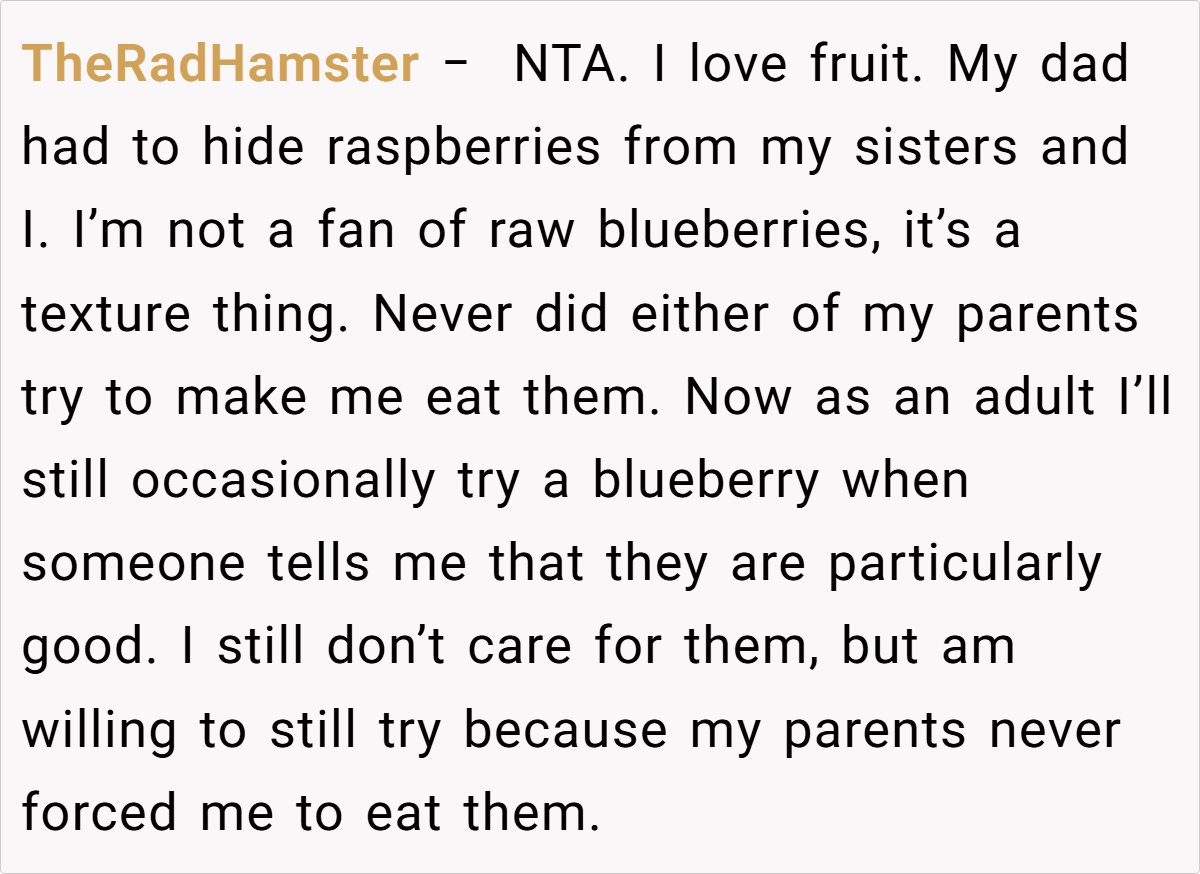






In conclusion, while promoting healthy eating is important, forcing a child to eat food they dislike might do more harm than good. Respecting a child’s preferences—even when it means opting for an alternative fruit—can nurture a positive relationship with food and reduce mealtime tensions. What do you think? Is it better to let children decide what they eat, or should parents insist on certain healthy habits? Share your thoughts and experiences below and join the conversation on finding balance at the dinner table.

